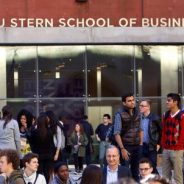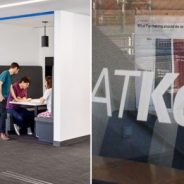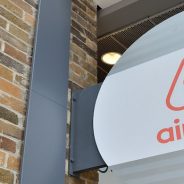Search results for career:
Friday News Roundup – Sustainability at NYU, Ohio State Commencement, and More
Let’s take a look at some of the biggest stories from this week, including the new NYU sustainability efforts at the Stern School of Business, OSU Fisher commencement’s celebrity speakers, and more.
NYU Stern Center for Sustainable Business Announces New Initiative “Invest NYC SDG” with $350K in Support from the Goldman Sachs Center for Environmental Markets and PepsiCo. – NYU Stern News
In support of New York City planners’ efforts to implement sustainable development initiatives, NYU’s Stern Center for Sustainable Business has launched “Invest NYC SDG” (Sustainable Development Goals).
The Goldman Sachs Center for Environmental Markets and PepsiCo have donated $350,000 to jump start Invest NYC SDG’s efforts. Invest NYC SDG is comprised of a team of investors and corporate leaders who will address such challenges as access to clean energy, affordable housing, and climate change resilience. Employment, revitalization, and responsible urban development are the initiative’s key goals.
Professor Tensie Whelan, founding director of NYU Stern’s Center for Sustainable Business says, “We are excited to develop a shared vision for the future of sustainable economic development in NYC with a wide group of public and private sector stakeholders, and longer-term, help others to replicate that vision in cities across the world.”
Read here for more on Stern and Invest NYC SDG.
Fisher to celebrate the Class of 2019 – Fisher College of Business News
Ohio State University’s Fisher College of Business will hold pre-commencement ceremonies on May 5, 2019.
Fisher holds this event to honor b-school students prior to the all-school commencement on the same day. This year, Fisher will honor 225 MBA, HR Management and Specialized Master of Finance graduates, 69 Masters of Accounting (MAcc) grads, and 32 EMBAs.
Headlining the event as a speaker will be Peter Cohen, who graduated from Fisher in 1968 and later went on to become Wall Street’s youngest CEO at the age of 36. Gary Price, partner affairs leader and chief administrative officer at PwC will deliver the MAcc keynote address. A 1983 Fisher grad, Price remains engaged with the Accounting and Management Information Systems Departments at Fisher.

CNN Worldwide host and writer Fareed Zakaria will honor Fisher’s EMBA graduates at this year’s commencement.
The EMBA ceremony will feature speeches from the class valedictorian, along with an awards presentation. Commencement for the larger OSU community will be at noon on May 5, and will feature an address by Fareed Zakaria, columnist for The Washington Post, a contributing editor for The Atlantic, and CNN Worldwide host.
For more on the Ohio State commencement speakers, click here.
Rutgers University – Newark Demonstrates Leadership in Social Entrepreneurship as Host of New Jersey Summit – Rutgers Business School News
Rutgers University in Newark served as host to the New Jersey Social Entrepreneurship Summit last month, bringing together innovators and impact investors, and other leaders creating change through their businesses.
Among the issues presented by speakers were how to legally structure a business to be recognized as a social impact venture; how to form a narrative to draw investors, and the best ways to align profit with a socially responsible mission. Jeffrey Robinson, Associate Professor of Management and Entrepreneurship and Academic Director of The Center for Urban Entrepreneurship & Economic Development (CUEED) at THE Rutgers Business School, led the Summit.
Robinson said of the event:
“[Its] purpose was to raise the profile of social entrepreneurship in New Jersey by bringing leaders of the social sector and entrepreneurs who address social and environmental problems in their businesses together to learn from and support one another.”
The New Jersey Office of Faith Based Initiatives, the Pro Bono Partnership of New Jersey, and Uplift Ventures were just a few of the Summit’s participants, which was attended by 250 students and members of the surrounding community. You can read more about the Summit here.
UCLA’s Chief Sustainability Officer Rolls with It – UCLA Anderson News
Led by Nurit Katz (MBA/MPP ’08), Executive Director of Facilities Management and the university’s first Chief Officer of Sustainability, UCLA Anderson is aiming to become a nationwide leader in the use of active transportation around campus.

Katz (left), the first Chief Officer of Sustainability at UCLA Anderson, has introduced new bike paths and ride sharing to the campus (center, right), making UCLA more energy efficient and friendly for the years to come.
“Our Healthy Campus Initiative integrates well with the UCLA Grand Challenges of climate change and mental health because the overall goal is wellness in body and mind—our health depends on environmental health,” says Katz. UCLA is a participant in LA’s Bike to Work Week, and also launched the popular Bruin Bike Share program which is part of the region’s larger bike share initiative.
Katz has been a strong proponent of cycling and other forms of active transportation on campus since she attended Anderson. Along with founding the university’s Sustainable Resource Center, she also serves on the advisory boards of Sustainable Works and the Green Business Council of Southern California, as well as on the steering committee of the USGBC Resilience LA Initiative. She also is a member of the California Higher Education Sustainability Conference Steering Committee.
Katz, who completed a full Ironman distance triathlon in 2010, is one of UCLA Anderson’s ‘Inspirational 100’ alumni. Read here for more on Katz and her work.
World Economic Forum Recognizes Questrom Professor – Boston University News
Boston University Questrom School of Business Professor Marshall Van Alstyne, one of the world’s leading experts in information business models, has been honored by the World Economic Forum for exceptional work in his field.
His research on the theory of network effects, which is now taught worldwide, explores the relationships between communications markets, intellectual property, and the social effects of technology. Van Alstyne, along with his co-authors Michael G. Jacobides of the London Business School and NYU Stern’s Arun Sundararajan, presented their whitepaper to members of the forum as part of its Digital Transformation Initiative.
Bruce Weinelt, the head of the DTI and member of the WEF’s leadership team, says:
“The DTI is a multi-year engagement analyzing the impact of digital transformation on individual sectors on the enterprise and on society at large … One of the notable findings of this project is the development of a unique economic framework which actually identifies and quantifies the impact of digital on industry as well as society.”
You can check out the whitepaper, along with Van Alstyne’s presentation, online.
Accelerated Full-Time MBA
Florida State College of Business Full-Time MBA Program Structure
The FSU College of Business full-time MBA program is an accelerated, one-year MBA which can be taken entirely on the FSU campus. However, with approval of the program director, some select students can take a few online-only specialization electives, such as management information systems, real estate, and risk management and insurance.
In total, the full-time curriculum requires 39 credit hours of courses to complete, with 30 designated for core coursework.
Curriculum
The 30-credits of core courses consist of the following courses:
• Financial Reporting and Managerial Control
• The Legal & Ethical Environment of Business
• Problems in Financial Management
• Information & Technology Management
• Marketing Strategy in the Global Environment
• Organizational Behavior
• Operations Management
• Business Conditions Analysis
• Strategy and Business Policy
• Professional Development (split between three separate semesters)
Students can specialize in the following subjects, which requires nine credits of coursework: accounting; business analytics (online or on-campus); finance; human resources; real estate (online or on-campus); supply chain management; management information systems (online); and risk management and insurance (online).
Full-Time MBA Rankings
• U.S. News & World Report: 79 (tie)
Class Profile
There are currently 54 students enrolled in the Florida State full-time MBA program, of which, 27.8 percent are female, 72.2 percent are male, 9.3 percent are international, and 16.7 percent are of U.S. minority status.
The average age of new entrants is 24-years old, the undergraduate GPA mean is 3.68, and the average GMAT score is 564.
Career Statistics
According to recent data, about 80 percent of FSU College of Business grads are employed within three months of earning a degree, with an average base salary of $64,583.
Tuition, Scholarships, and Financial Aid
The total cost of tuition and fees for the Florida State full-time MBA program for in-state residents is $18,693.48, while out-of-state students pay $43,318.08. Per credit, this breaks down to $479.32 in-state, and $1,110.72 out-of-state. These figures do not include expenses for materials, food, or on-campus living. State government employees may also be able to waive upwards of six credits worth of tuition and fees for classes taken on the FSU campus.
Master’s students seeking a business degree enrolled in no less six credit hours are eligible for college-wide scholarships. In addition, single departments, such as the Department of Accounting and the Department of Marketing, also offer scholarships to select students. More information can be found here on specific scholarships.
Admissions
In order to apply to the FSU College of Business full-time MBA program, applicants must submit the following:
• A completed application form
• Transcripts
• An online Florida residency form
• GMAT/GRE scores (waiver available for select students)
• A current resume
• Three letters of recommendation
• $30 application fee
• English speaking proficiency test scores (required for international applicants)
Applications must be submitted by March 1, every year.
Chicago Booth Alumni Gift Funds Marketing Professorship and More
In recognition of the many ways that Chicago Booth has impacted his career, Jim Kilts (Booth MBA ’74) recently make a $4.25 million donation to create the Kilts Family Professorship and the Kilts Faculty Research Prize for Excellence in Marketing. His gift will also go toward providing additional support for the James M. Kilts Center for Marketing. This is just a small piece of the more than $12.5 million that the Chicago Booth alumni has donated to the school’s marketing efforts over the last 20 years.
Through his gifts, Kilts hopes that Chicago Booth will remain on the cutting edge of marketing education. He already believes it’s the best marketing school in the world, and he credits the exceptional faculty, data resources, and multi-disciplined approach with making that possible. Another piece of that success is the Kilts Center, which has a long-standing relationship with Nielsen; this allows them to distribute data sets to more than 1,000 researchers from 130 academic institutions.
According to Jean-Pierre Dubé, Sigmund E. Edelstone Professor of Marketing and Director, Kilts Center for Marketing, “Jim Kilts’ gift to create a new professorship and a new faculty research prize will play an instrumental role in supporting and recognizing ground-breaking research in marketing, while helping us to attract and retain the world’s top marketing scholars.”
About Jim Kilts

Jim Kilts started his career at General Foods when he was just a teenager. By college, he was a lab technician, and that paved the way for his future career. After earning his MBA at Chicago Booth in 1974, Kilts went on to become CEO of three iconic consumer goods companies: Kraft, Nabisco, and Gillette. Later, he founded a financial advisory and private equity firm, and he credits Chicago Booth with much of his success.
“It’s always been a great school and I owe my prosperity to the University of Chicago, the institution which changed my life,” Kilts says. “I hope my latest gift provides the added support to help make Booth the best marketing school in the world.”
Read more about the gift and the Chicago Booth alumni on the Chicago Booth news site.
This article has been edited and republished with permissions from its original source, Clear Admit.
School v. School: Ohio State Fisher vs. Minnesota Carlson
Narrowing down the options to pursue an MBA can be daunting, to say the least. Reputation, accessibility of alumni networks, rankings, and flexibility are just a few things to consider, not to mention location and cost. If you’ve already narrowed down a region in which you’d like to study and work, you’ve taken the first big step.
The Midwestern U.S. is rich with b-schools, and it is also home to a number of accounting, retail, utility, and agricultural firms that are always on the lookout for new talent. Following is a comparison of two schools in the region, Ohio State University Fisher College of Business and the University of Minnesota Carlson School of Management, which may be helpful as you hone in on your destination schools.
Ohio State vs Minnesota: Location
As Midwestern cities go, both Columbus, Ohio, and Minneapolis, Minnesota have strong overall appeal. Both cities are just about an hour’s flight from Chicago, but both have strong reputations as cultural centers themselves. Here is a look at some of the other factors that may determine which city is best for you.
- Cost of Living: The cost of living in Minneapolis 28 percent higher than that in Columbus.
- Housing: Minneapolis’ median housing price is 61 percent higher that Columbus’.
- Median Age of Residents: Residents of both cities are an average age of 32-years old.
- Median Income: Minneapolis residents make $56,000 annually, while those in Columbus make $49,000.
- Jobs: Columbus’ rate of unemployment is 1.3 percent higher than Minneapolis’.

The cost of living in Minneapolis is higher than Columbus, but Carlson grads, on average, earn higher salaries.
Ohio State vs Minnesota: Rankings
University of Minnesota Carlson School of Management
• U.S. News & World Report: 35
• Bloomberg: 29
• Forbes: 27
• Financial Times: 42 in the U.S.; 81 Global
• The Economist: 25 in the U.S.; 32 Global
Ohio State Fisher College of Business
• U.S. News & World Report: 31, 11 among public universities
• Financial Times: 84, 37 in the U.S., 20 among public universities
• Forbes: 46 overall, 23 among public universities
• The Economist: 55 overall, 45 in the U.S., 18 among public universities
Ohio State vs Minnesota: Cost
At Fisher, tuition for in-state residents, inclusive of fees, is $31,139. For those out of state, it is $53,642. At Carlson, full-time tuition for Minnesota, Wisconsin, North Dakota, South Dakota, and Manitoba residents is even more affordable at $20,060 per year. For non-residents it is $33,280 per year. There is a student services fee of $1,000 per year and a technology fee $1,200 per year.
Ohio State vs Minnesota: Post-graduate Employment
Fisher MBAs make an average starting salary of $97,626 and an average signing bonus of $21,360. Ninety-six percent of U.S. citizens and 90 percent of international students have job offers three months after graduation. The top five industries for Fisher MBAs are consulting, consumer products, financial services, healthcare, and manufacturing.

Upwards of 96 percent of U.S. citizens and 90 percent of international students have job offers three months after graduating from Ohio State’s Fisher College of Business.
The mean base salary for Carlson grads is $113,000 and a signing bonus of $25,192. About 80 percent of MBAs receive job offers three months after graduation, and 95 percent did so six months after graduation. The top five fields for Carlson MBA grads are marketing/sales, consulting, finance/accounting, general management, and operations/logistics.
Inside Ohio State Fisher
Fisher’s recently redesigned curriculum features skills assessments, personalized curriculum, and coaching based upon each student’s focus. The program incorporates immersive, cross-functional projects for top companies and organizations locally and globally. Unique program elements such as the Global Applied Projects, Business Lab Project and the Core Capstone Experience provide MBA students with numerous opportunities that will lead them into a successful career.
A total of 25.5 credit hours are integrated core coursework, 7.5 credit hours are comprised of experiential learning (Business Lab Project, Social Impact Challenge, Optional Global Applied Project), and 27 credit hours are elective coursework. The program requires a minimum of 60 credit hours to graduate.
Along with the full-time MBA, Fisher also offers a Working Professionals MBA and an Executive MBA.
Inside Minnesota Carlson
Carlson’s program is non-traditional in that it begins in the summer with online courses. In their first year, students take 25 of the 64 required credits in core courses, and they can then choose from over 70 electives. Experiential courses make up the second year, at which point students are offered global experience in one of three ways: a semester abroad; a two-week global “enrichment;” or a global course. The length of the commitment for the global experience can be counted for as little as four credits, or as much as 10.
Part-time, Online, and Executive MBAs are also available at Carlson along with the full-time MBA degree.
Company Battle: Accenture vs AT Kearney
Consulting positions are among the most coveted roles for MBA graduates—and international management consulting firms Accenture and A.T. Kearney are teeming with opportunities for MBAs.
Dublin, Ireland-based Accenture is a Fortune Global 500 company that offers professional services in addition to management consulting. In addition to the many awards Accenture has received in recognition of its global leadership in finance, it has also been ranked for 15 consecutive years on Forbes’ Global 2000 list.
A.T. Kearney, headquartered in Chicago, offers consulting to over 75 percent of the Fortune Global 500, spanning a diverse array of industries like aerospace and defense, transportation, healthcare, and oil and gas.
Accenture vs AT Kearney: Salaries
Managemant Consulted compares the base salaries made by MBA graduates at both companies in 2019, finding that the compensation was pretty comparable—A.T. Kearney offers $158,000 per year and Accenture offers $150,000 per year.
However, each company has a unique approach to bonuses. A.T. Kearney offers up to $44,100 while Accenture offers $30,000 to all employees in their first year after receiving their MBA. Top performers are rewarded with an additional $15,000. Accenture offers a very valuable $80,000 tuition reimbursement to select MBA grads.
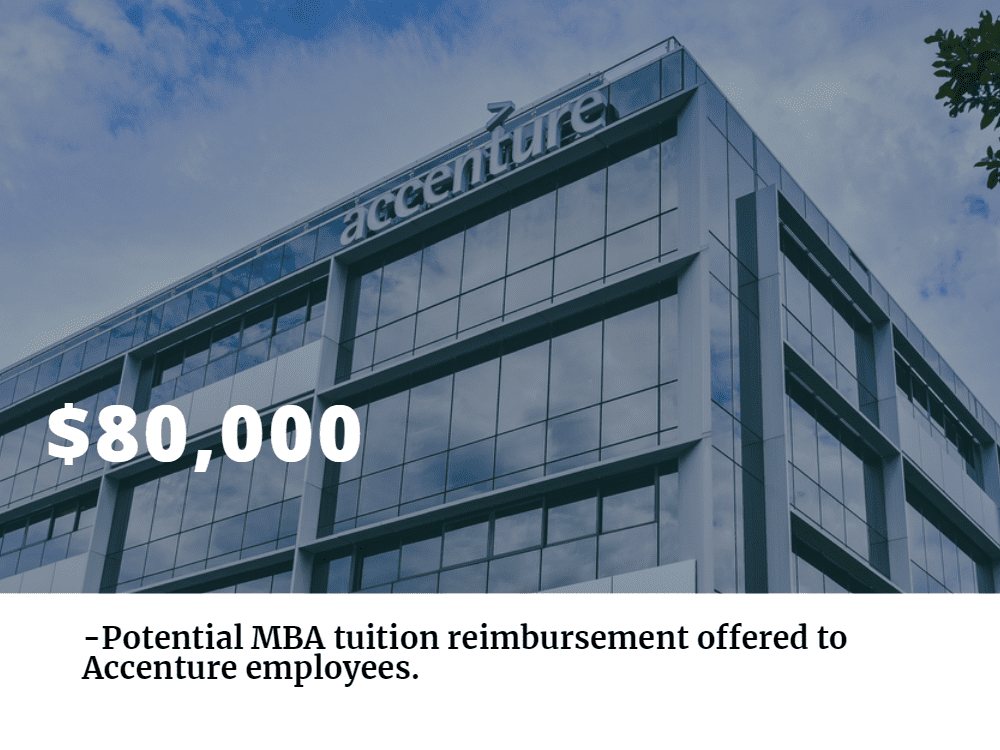
Accenture vs AT Kearney: Company Culture
When it comes to culture, A.T. Kearney emphasizes collaboration over analysis, striving for creative strategies to keep up with an ever-changing marketplace.
A.T. Kearney has been recognized many times for their progressive initiative with regard to workplace equality. TransparentCareer ranks the company in the top 30 for satisfaction among MBA graduates. However, it is important to note that the same blog also reports that up to 80 percent of an MBA graduate’s time working at A.T. Kearney may be spent in transit.
A.T. Kearney has long recognized the importance of workplace diversity and it enforces a strict no-harassment policy. It has created networks for women, POC, and LGBT to reinforce a sense of community and belonging in the workplace. It has also been recognized for its progressive policies, having scored a perfect 100 for seven years straight in the Corporate Equality Index and received an award in 2017 for Best in Class for Diversity Leadership in Diversity MBA Magazine.
From 2015-18, it was also ranked as one of the “Best Places to Work” by the Human Rights Campaign and from 2013-17 as one of the “Top 100 Firms for Working Families and Women” by Working Mother.
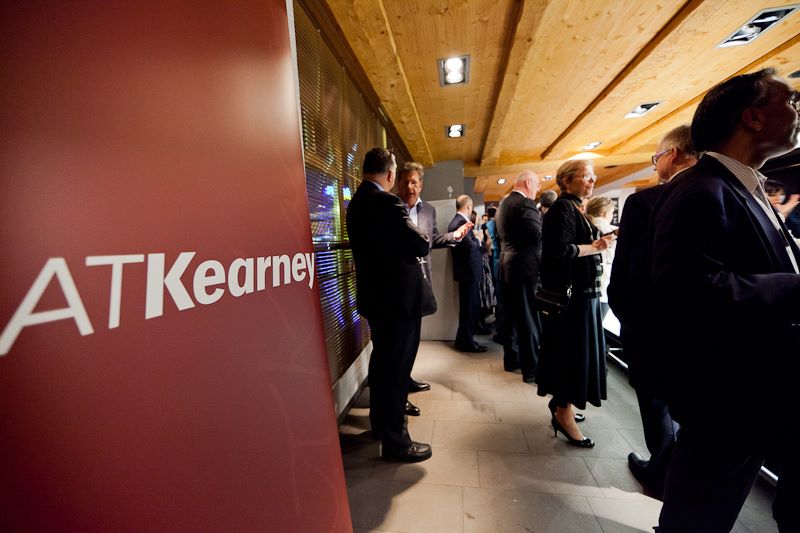
Working Mother has lauded A.T. Kearney for years as one of the best career landing spots for working mothers in the U.S.
Accenture regularly ranks highly on lists that highlight forerunners in workplace culture. It were ranked second overall for eight consecutive years in Business Today/PeopleStrong’s “Best Companies to Work For” and 16th for four consecutive years in the Sunday Times “Best 25 Big Companies to Work For.”
Accenture is also committed to workplace equality, aiming for a gender balanced workforce by 2025. It is committed to creating Culture of Equality, citing the imperative of workplace diversity for a thriving business.
It has been recognized for the efforts by being included two consecutive years on the Bloomberg Gender-Equality Index and 16 consecutive years on Working Mothers’ 100 Best Companies and the list of Best Companies for Multicultural Women.
Accenture vs AT Kearney: Versatility
As noted above, MBA graduates employed at A.T. Kearney can expect to travel frequently as part of their work. They have over 3,600 employees in offices in more than 40 countries across the Americas, Europe, Middle East, Africa, and Asia Pacific.
Accenture, a much larger company, has more than 435,000 employees serving clients in over 120 countries, as well as offices in 52 countries.
The Affordable Healthcare MBA Guide

For MBA hopefuls and graduates, careers in finance or consulting are not the only options.
As the healthcare industry continues to evolve, so do its business needs. For those with savvy business acumen and enough experience to handle a changing landscape, an MBA can help lay the foundation for a long, rewarding career in healthcare.
But, like many graduate degrees, cost is a major factor. Here's what you need to know when looking for an affordable healthcare MBA degree:
Where to Start?
Business schools in and outside of the United States continue to incorporate healthcare education into the MBA curriculum. However, not every school offers specified healthcare management education just yet.
The most traditional and readily available option is a dual degree, combing an MBA with a Medicinae Doctor (Doctor of Medicine) degree, or, MD. Most well-established institutions, such as the Harvard Business School, offer these kinds of dual degree options, which combine the rigorous training of an MBA with specific medical expertise from the university's affiliate medical school. However, as one may assume, earning a dual degree can take much longer than a specific healthcare MBA degree, and also become significantly more costly.
For those wary about the time it takes to earn the degree and the cost associated with taking on two separate graduate school course loads, the optimal option may be to go after specified healthcare MBA programs.
An Affordable Healthcare MBA Degree
To start, we'll look at some of our favorite specialized healthcare MBAs, which help mitigate time and cost, and provide a better return on investment.
Questrom School of Business - Boston University
Boston University's Questrom School of Business Health Sector full-time MBA (HSN) program shares a similar curriculum to the school's highly-ranked full-time MBA (50th in the U.S., according to U.S. News & World Report), combined with specific healthcare-centric electives. According to the school, this program provides experience and education regarding "basic elements of insurance and payment, service delivery, and life sciences products will be described, and put in the context of the unique economic structure of the sector."
The degree does not limit itself, however. Students can combine a Healthcare Sector MBA degree with an MD or a Master of Public Health (MPH) through the university's School of Public Health. Alone, tuition for the Health Sector full-time MBA degree is currently $55,480 annually. Combined with the cost of fees, room and board, and more, and the annual total comes to $76,550.
University of Colorado – Denver Business School
The University of Colorado Denver Business School is one of the few schools in the U.S. that offers two MBA programs that specialize in healthcare management: the Health Administration MBA; and the Executive MBA in Healthcare Administration.
The Health Administation MBA can take as little as two years or as long as five years, make it among the more flexible MBA offerings available. In addition, class are also available online, making it one of the more high-rated and affordable online MBA programs in the U.S. For in-state residents, tuition for the 48-credit program is just $30,048 ($626 per credit). Out-of-state residents pay $66,144 ($1,378 per credit) for either the full-time or part-time track. However, if classes are taken online, the tuition cost for out-of-state students drops to $35,088. As a bonus, there is no specified work requirement needed in order to enroll, and a GMAT waiver is available for select students.
The Denver Business School Executive MBA in Healthcare Administration is designed similarly to the standard Health Administration MBA. However, it only takes two years to complete and is built strictly for applicants that already have at least five years of previous professional health care experience. The total cost is a flat rate for students, regardless of residence, at $59,000 for the entire program.
Carlson School of Management – University of Minnesota
The University of Minnesota Carlson School of Management part-time MBA program concentration options set itself apart. The part-time MBA program at the school's Twin Cities campus offers students a Medical Industry Specialization offering, according to the school, "a specialized curriculum, access to a thriving community of medical industry employers, and opportunities to partner with the full spectrum of health care service providers, from device manufacturers to hospitals and everything in between, to solve emerging healthcare challenges."
This program, formally called the Medical Industry MBA, allows students to connect with well-established medical facilities, including the nearby Mayo Clinic. Students in the program also undergo the Medical Industry Valuation Laboratory, a graduate elective that offers first-hand experience is the evolving world of medical technology. The program itself is often recognized as one of the best in the world, currently ranked as the second best in the entire U.S. by U.S. News & World Report.
Tution can vary for in and out-of-state students. Currently, students, regardless of their state of residence, pay $1,535 per credit. However, if out-of-state students take more than 11 credits worth of courses per semester, the cost of each successive credit is $1,963.
Other Healthcare MBA Options
The WhartonSchool – The University of Pennsylvania
If price is not as much of an issue, or if one is lucky enough to have their education provided for by scholarships or employer sponsorship, than an Ivy League education at The Wharton School seems like an obvious destination for those with the requisite academic acumen and experience.
The school's MBA Program in Health Care Management combines elements of the the Wharton Management core curriculum and the Health Care Major curriculum, which provides, according to the school, "an understanding of the concepts, institutions, and issues specifically involved in the organization, financing and delivery of health services and products."
Like many of the aforementioned business schools, Wharton offers MBAs a chance to combine dual degrees, including an MBA/MD, an MS in Bioethics, MSN, and more. The total cost, which includes tuition, fees, cost of living in Philadelphia, and more, comes to $114,896 annually. Which might sound like a lot, but, for a unanimous top five ranked business school in the world, the cost-benefit is very worth the investment.
Kenan-Flagler Business School – University of North Carolina
The University of North Carolina's Kenan-Flagler Business School has long been known as one of the country's premiere healthcare business academic destinations. For it's lauded full-time MBA program (23rd in the U.S. and 26th in the world, accoriding to Bloomberg), the Healthcare Concentration helps develop "skilled professionals who are well-prepared to take on the difficult challenges in the healthcare industry, and on building a strong presence in the industry," according to the school.
Total tution, combined with living expenses and fees, costs $76,824 for North Carolina residents in the first year, and $91,946 for out-of-state residents.
Top MBA Recruiters: Airbnb
One of the great clichés of the tech industry is the notion of “disruption.” As in, nearly every app, website, or program will disrupt the way we previously conceived of our environment. All this talk of disruption in tech often amounts to a lot of hot air, but not so for Airbnb.
Initially founded as a way for two guys to earn a bit of extra income to cover astronomical San Francisco rent, Airbnb has become a leader in peer-to-peer property rental. Millions of people use the service each year to find temporary lodging in virtually every nook across the planet
As Airbnb’s popularity soars and the company continues to expand its services—it recently acquired HotelTonight, a discount hotel booking service—MBAs with interest in hospitality should consider these Airbnb careers.
Why MBAs Love Airbnb
Airbnb is a young company, launched in 2008. In that short time, it has established itself as a power player in the hospitality industry. With an IPO in the pipeline this year, the company is working to shore up its future. This means further expansion into new markets and new services to maintain company profitability. MBAs who long to play a vital role in the expansion of an already hot brand will find opportunities in spades at Airbnb.
Airbnb compensates MBAs well for their contributions. According to Glassdoor, MBAs who arrive as program managers can earn an average of $117,299 in base salary and $18,868 in a cash bonus. Those who receive stock bonuses can earn an extra $32,669.
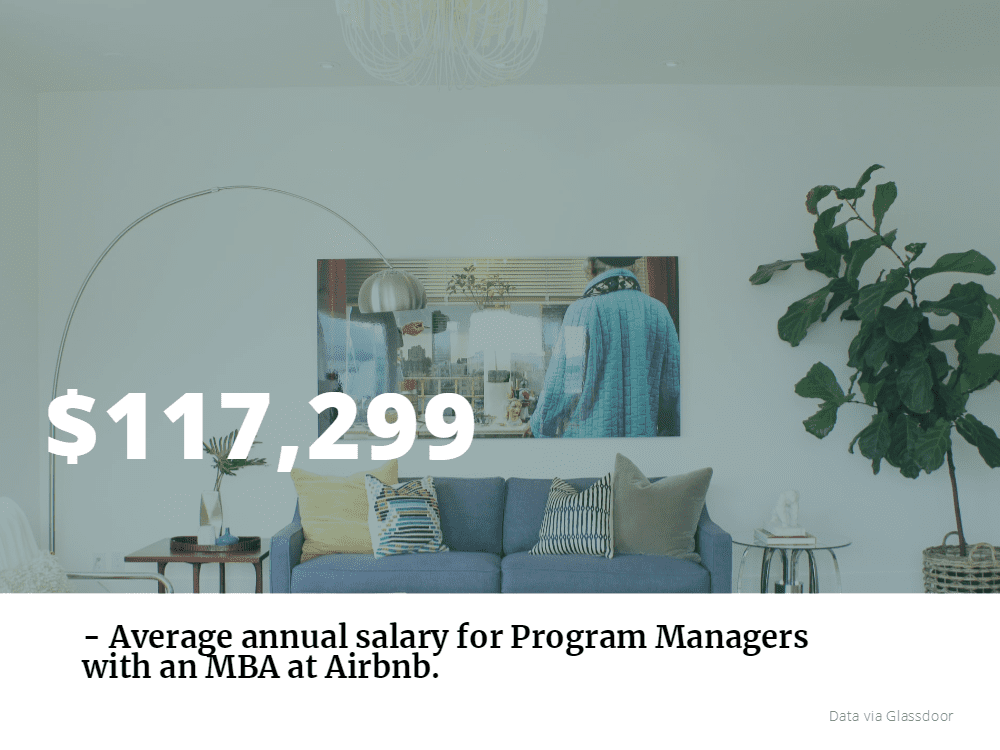
In addition to the salary, Airbnb careers have excellent benefits. Employees will find health care, dental care, 401(k), life insurance, and a complimentary snack pantry on pair with most Silicon Valley startups. However, Airbnb offers a few other unique perks.
To start, the company provides stipends to its employees to cover cellphone bills, continuing education, and commuting, whether by bike or by public transportation. In addition, Airbnb provides its employees with a $2,000 travel stipend to stay in any Airbnb property in the world, which essentially gives Airbnb employees gratis accommodations wherever they travel during their three weeks of annual PTO.
Life at Airbnb
One might gather that Airbnb encourages its employees to maintain a healthy work-life balance, which many employees have remarked is actually quite easy. Airbnb employees also seem to enjoy the company of their coworkers, who are often described as thoughtful, intelligent, and nice.
The company has a lenient telecommuting policy. However, most employees come into the office because the provided spaces are worthy of spreads in Architectural Digest. Airbnb hires local architects to customize each office to its city. The employees have noticed; many note that the gorgeous offices are a major benefit of working for the company.
Airbnb Careers
The firm has four core values:
- Champion the Mission
- Be a Host
- Embrace the Adventure
- Be a “Cereal” Entrepreneur
Successful candidates will be able to explain how their skills and talents fit with these core values.
The interview process for the product manager position starts with a phone interview. If approved, candidates will venture to the Airbnb office for a full day of interviews and examinations. This includes case study presentations and multiple interviews. If the company considers you a fit for its company, it will extend an offer.
As noted above, cultural fit is extremely important at Airbnb. The company encourages candidates to set aside some time to consider how they might contribute to the culture at Airbnb. The company recommends making contact with a current employee to help gather information on what Airbnb expects regarding its core values.
Executive MBA
University of Florida Hough Executive MBA Program Structure
The 21-month Executive MBA at the University of Florida Hough Graduate School of Business begins every August, with classes held one weekend per month. The program is ideally designed for applicants that have at least years of professional management and leadership work experience.
Each term in the program features three business courses in addition to a leadership development course. In addition, students in the program must complete a one week international study tour. A total of 48 credits are required to complete the program. In addition to the required coursework and study tour, UF EMBA students also experience many facets of professional career development, including workshops, a career transformation weekend, networking events, and a speaker series.
Curriculum
After the required orientation in August, students complete the required core coursework, of which includes the online-only Professional Writing class. This is the only remote portion of the program, however. After several terms of core coursework, students begin term four the following summer, which features the aforementioned global immersion experience. Students then begin completing elective coursework, with the program culminating in term seven’s Global Strategic Management course.
Executive MBA Rankings
• The Economist: 60
Class Profile
The average age of the University of Florida Executive MBA class is currently 37-years old. Students in the program join with an average of 13 years of prior work experience, a GMAT average of 600, and a GPA of 3.1
Tuition, Scholarships, and Financial Aid
The total tuition and fees for the University of Florida Executive MBA program is currently $62,807.52. A non-refundable $1,500 fee is required to hold a spot in the class.
Most students in the program enroll with federal financial aid. However, private loan options are available and may be a requirement for international applicants. Head over the Office for Student Financial Affairs page to learn more. Employment sponsorship is also available, depending on one’s employer.
Admissions
To apply to the University of Florida Executive MBA program, an online registration form must be completed prior to the official application. After that is completed and accepted, the school asks for a UF MBA Supplemental Application, which features select essay questions that should only be one page long.
Applicants must have an accredited bachelor’s degree from a U.S. school, or equivalent, in addition to eight years of previous work experience.
In addition, the following must be submitted:
• Official transcripts
• A résumé
• Two letters of recommendation
GMAT scores are required, unless the applicant has already earned a Ph.D, MD, DMD, DVM, JD, or PharmD from a U.S. school. Or, they have any Master’s degree and have already taken the GMAT. The GRE is not accepted for international applicants.
International applicants must submit immigration documentations and a Certificate of Financial Responsibility. In addition, those who earned an undergraduate degree from a non-native English speaking country or academic institution may have to take an English proficiency test. These can include the TOEFL, IELTS, or the MELAB (Michigan English Language Assessment Battery).
Application deadlines are as follows:
| Admission Term | Apply By | Orientation | Classes Start |
|---|---|---|---|
| Fall | Jun 1, 2022 | Aug 5-6, 2022 | Aug 7, 2022 |
New Pharmaceutical MBA Jobs That Will Catch Your Attention
Any time you’re making a run to your local CVS, Duane Reade, Wallgreens or Rite Aid, you’re surrounded by a cornucopia of consumer goods. From soaps to over the counter medicines, cleaning products to make-up, there’s no shortage of stuff you can conveniently buy. As such, there’s also no shortage of new MBA jobs at the companies who manufacture and distribute the goods. Here’s a selection of new pharmaceutical MBA jobs at companies you should remember. Continue reading…
Full-Time MBA
University of Florida Hough Full-Time MBA Program Structure
The University of Florida Hough Graduate School of Business at the Warrington College of Business offers three variations of its AACSB-accredited full-time MBA program: a Two-Year, traditional style full-time MBA; a One-Year MBA for all majors; and a 10-month MBA built for business majors.
The Two-Year path features 12 core courses and three electives in the first year, split between four separate modules. These modules usually feature three or four distinct courses. Students typically begin elective courses after the second module. In the second year, elective courses expand from three to six in total. In addition, there are two optional global experience offerings. These take place during the fall and spring breaks.
The One-Year All Majors accelerated path for students regardless of undergraduate major begins in the summer with the Summer A block of courses. The following year, the program culminates with the Summer B block of courses. In total, these summer blocks feature 10 of the 16 required core courses. The final required courses, plus the nine required elective courses, take place during the fall and spring. Like the Two-Year path, students can complete optional global immersion experiences during the fall and spring breaks. In total, students need 48 credits to complete the One-Year UF MBA.
The One-Year Business Majors program operates on a similar schedule to the full-time One-Year All Majors path, albeit with less core courses. This means that the initial summer semester only features a One Week Foundations Review.
Curriculum
The University of Florida Hough Graduate School of Business full-time MBA program offers over 100 elective course options, crafted around six distinct concentrations: business analytics; human capital; marketing; real estate; strategy; and supply chain management.
In addition to the traditional curriculum elements, the UF MBA program features intensive leadership coursework. This covers topics such as emotional intelligence, ethical leadership, social responsibility, and more. With the expansive array of opportunities at the University of Florida, MBAs also have a litany of experiential options at their disposal, which can include management simulations and seminars, international immersion experiences, career coaching, workshops, and much more.
Full-Time MBA Rankings
U.S. News & World Report: 28
Bloomberg: 32 (US)
Financial Times: 40
The Economist: 40
Class Profile
The MBA program at the Hough Graduate School of Business has 66 percent male students and 34 percent female students. About 14 percent are international students.
The average GMAT score is 687, the undergraduate GPA mean is 3.38. The average amount of prior work experience is 4-5 years.
Career Statistics
About 90.6 percent of UF full-time MBA graduates earned employment offers within three months of graduating. The average base salary of recent grades is around $109,500 per year, with an average signing bonus of $23,400.
Tuition, Scholarships, and Financial Aid
Total tuition and fees for the University of Florida Hough full-time MBA is currently $26,473 for Florida residents and $61,260 for non-Florida residents. The One-Year Business Majors program cost is $17,982 for in-state residents and $41,173 for out-of-state residents. The One-Year All Majors program cost is $25,475 for in-state residents and $60,261 for out-of-state residents. These figures do not include the cost of living on campus, materials, travel expenses, and other miscellaneous expenses.
Scholarships covering the entire cost of the tuition and fees are offered to qualified enrolled students that have demonstrated excellent previous work experience, academic performance, leadership experience, and other notable accomplishments. Students admitted into the program are automatically considered for the scholarship.
Most students in the program enroll with federal financial aid. Private loan options are available and may be a requirement for international applicants. Head over the Office for Student Financial Affairs page to learn more.
Admissions
To apply to the University of Florida Hough full-time MBA program, an online registration form must be completed prior to the official application. After that is completed and accepted, the school asks for a UF MBA Supplemental Application, which features select essay questions that should only be one page long.
Applicants must have an accredited bachelor’s degree from a U.S. school, or equivalent. Students must also have completed two years of previous work experience.
In addition, the following must be submitted:
- Official transcripts
- A résumé
- Two letters of recommendation
- GMAT/GRE scores
International applicants must submit immigration documentations and a Certificate of Financial Responsibility. Those who earned an undergraduate degree from a non-native English speaking country or academic institution may have to take an English proficiency test. These can include the TOEFL, IELTS, or the MELAB (Michigan English Language Assessment Battery).
Application deadlines are as follows:
Required Orientation: Aug 10 – 19, 2022
First Day of Class: Aug 22
| Admission | Apply by |
|---|---|
| Round 1 | Oct 15 |
| International Applicants | Oct 15 |
| Round 2 | Jan 15 |
| Round 3 | Mar 15 |
Penn State Smeal Director of Admissions Answers 5 Burning MBA Questions
In our latest installment of the MetroMBA “5 Questions” series, we speak with Michael Waldhier, the Director of Admissions at Penn State University’s Smeal College of Business. Waldhier talks about the close-knit, collaborative community at Smeal, his alumni experience, and the many activities, clubs, and opportunities available for students. He also shares about the 150-year-old Penn State Berkey Creamery—excuse us while we go grab some ice cream!

Michael Waldhier, Director of Admissions at Penn State’s Smeal College of Business
1. What is the Smeal College of Business’ greatest asset and what do you wish MBA students knew more about?
“Rather than discussing our #1 ranking in supply chain management or the fact that Penn State has the largest active alumni network in the country, I honestly think our greatest asset is our class—specifically the individual, tightly-knit, collaborative atmosphere that exists in our MBA program. We only accept 60 students per year in the resident MBA program, which allows for an unparalleled amount of interaction within the cohort, and ensures that faculty and staff build strong, personal relationships with everyone in the class.”
2. What makes the Smeal College of Business a special place for you?
“In addition to being Director of Admissions, I am also an alum of the Smeal MBA program, and remain extremely close to most of my classmates and many of the professors who still teach in the program today. After graduation, I was fortunate to land a principal role in strategy consulting and had the wonderful opportunity to travel extensively over the course of my career. When it was time to transition to something new, returning to Penn State, to ‘Happy Valley,’ and to Smeal was an easy decision for my family to make. This program had an enormous positive impact on my life and set me on the path to success, and I can’t think of any better way to pay it forward to future generations of Smeal MBAs than to be where I am today.”
3. How would you describe the culture of the Smeal College of Business? Is it more collaborative or competitive?
“As mentioned, given the small size of our MBA community and the amount of teamwork that is required throughout the experience, our program is extremely collaborative, so much so that students often help each other to broaden networks, land internships and jobs, and even study for exams. We put a lot of emphasis upon collaboration and teamwork, and students will recognize each other for positive contributions to the program that are aligned with the Penn State Values of integrity, responsibility, excellence, respect, discovery, and, of course, community.”
4. How does Smeal help MBA students pursue their special interests?
“While the MBA program itself may be very small in size, Penn State University is one of the largest in the nation, and there are activities and special interest clubs and groups for virtually everyone. Within the MBA program, we have numerous clubs and associations for students to join such as the MBA Association, Consulting Club, Net Impact, Finance Association, Military and Veterans MBA Association, and more. In addition, students have access to courses across the university if they want to explore a topic outside of the core Finance, Marketing, Supply Chain, and Consulting concentrations. To that end, we have packaged optional programs of study in nearly 20 topic areas, with more being added each year. This allows students the flexibility to customize their MBA experience and pursue just the right mix of coursework to satisfy any career or personal interest.”
5. What is your favorite part of the Penn State campus?

“There are a plethora of wonderful hiking and biking trails in the mountains surrounding Penn State, but the Arboretum is a special place where one can walk through gardens inspired by cultures across the world and study or relax amidst fountains and koi ponds,” Waldhier says.
A lot of people will talk about the Penn State Berkey Creamery, which has been making ice cream for over 150 years, or Beaver Stadium, one of the largest college football stadiums in the United States, but one of my favorite places on campus is the Penn State Arboretum. There are a plethora of wonderful hiking and biking trails in the mountains surrounding Penn State, but the Arboretum is a special place where one can walk through gardens inspired by cultures across the world and study or relax amidst fountains and koi ponds. It also helps that it is right next door to the Smeal College of Business, so students frequently go there after class for team meetings or to relax and unwind after a stressful day.”
School v. School: Vanderbilt Owen vs. Washington U. St. Louis Olin
When you have two highly competitive and comparable MBA programs on your list, which one do you choose? You have to look at everything from location to rankings, ROI, and program offerings. It’s how everything comes together that makes a program the best fit for you.
The good news is that our School v. School series is here to simplify your decision-making process with a point-by-point comparison of two stand-out programs: Vanderbilt University’s Owen Graduate School of Management and Washington University’s Olin Business School. We’ve collected everything you’ve always wanted to know about each program to see which is best for you. Continue reading…
New Harvard Social Entrepreneurship Track Competition Finalists Announced
Each year, the Harvard Business School New Venture Competition brings together the best and the brightest to compete for $300,000 in cash prizes. Designed for both HBS students and alumni, the competition offers two tracks: the Business Track and the Social Enterprise Track. Both tracks require teams to present a new venture idea that will have a substantial impact on their respective market. Winners have the opportunity to go ahead and implement their proposal using the provided seed money.
For 2019, 48 teams from across Harvard University applied for the Social Enterprise Track. Then, sixteen semifinalists were chosen to present their ideas to a panel of expert judges in their fields. Finally, four finalists were selected. Here’s who they are.

Gramhal
Presented by Vikas Birhma (HKS 2019) and Pankaj Mahalle, Gramhal offers post-harvest services of storage, credit, and market linkage for smallholder farmers. Having witnessed the problems that smallholder agricultural households in India face first hand, the team came up with an idea to help farmers keep more money by giving them the chance to save their harvest until they can sell it when prices are more favorable.
Hikma Health
Developed by Jordan Lebovic (HBS/HMS 2020), Senan Ebrahim (HMS 2021), Erik Grueter, and Zahra Allkhateeb, Hikma Health creates customized data management systems for healthcare providers caring for refugee patients. The idea initially started with a health education app for NGOs in Jordan. However, after talking to more health workers, the team realized that a free health data platform, tailored to refugees, would be far more valuable.
New Teachers Thriving
Created by Tyler Hester (HGSE 2020), Crystel Harris (HGSE 2021), and Akash Wasil, New Teachers Thriving offers training for early-career teachers. Many new teachers become burned out in their first years because they don’t have the training, support, and help they need to succeed. New Teachers Thriving is a year-long training sequence that will support new teachers as they navigate their first year in the classroom.
Vincere Health
Put together by Jacob Keteyian (HSPH 2019), Shalen De Silva (HSPH 2019), Ollie Osunkunle (HBS 2020), and Han Jin (HGSD 2019), Vincere Health helped people get paid for digitally proving health compliance while offering data control. The idea behind the product is to motivate health behaviors by offering daily rewards. In particular, they are attacking the smoking cessation market.
Read more from each of the finalist about entrepreneurship, concept creation and more on the HBS website.
This article has been edited and republished from its original source, Clear Admit.
Fighting the Gender Pay Gap at Berkeley Haas
The gender pay gap is still alive and well in business, particularly in tech. At least that’s what Christina Chavez, a ’19 Berkeley Haas MBA student, discovered when she logged into an online compensation board named Blind while working at Microsoft a few years ago. There was a shocking difference between what male and female colleagues were getting paid. So, when Chavez was accepted into the Haas MBA program, she put pay equity and transparency as one of her top goals.
Last fall, Chavez’s goal came to fruition with the help of her classmate Jack Anderson, a fellow member of the Haas Gender Equity Initiative. Together, they set up a spreadsheet where classmates could share details about their compensation packages. Then, using salary data and research provided by Professor Laura Kay, they created a Haas Wage Gap Infographic.
“We earned 96 cents to the dollar in the last MBA class, and people were like ‘yeah we’re approaching equity,’ but this gap grows over time,” Chavez says.
Transparency and the Gender Salary Gap
Unfortunately, for alumni with more than ten years of experience, the salary wage gap between men and women is much more extensive. So, the goal of the project is to expand what’s already offered through CMG Bears (a Haas Career Management Group tool) and to understand the long-term salary gap concern better. Transparency is a critical weapon to close the gap.
And transparency is particularly important when it comes to compensation outside of salary. While recent research conducted by Professor Kray and Margaret Lee at the Center for Equity, Gender, and Leadership (EGAL), revealed that alumni base salaries between 1994 and 2014 were only 8 percent higher for men, it was in the bonuses, share values, and options where men far outpaced women. Overall compensation for Haas women MBAs averages about $290,000—66 percent of men’s $439,000 average.
More than Negotiation Skills
While you might think, at first, that it’s all a matter of negotiation skills, that’s not what Kray and Lee’s research finds. Yes, it’s essential to know what compensation is available and what other people are earning in comparison; the problem for women is that there is an inherent bias toward men. Men tend to be put in charge of larger teams than equally-qualified women, and they get paid more because of it.
“You can change processes, but the long-term problem is people’s individual biases,” Kellie McElhaney, the founding director of EGAL, says. “If they believe things like men do a better job at leading big teams, or that women bosses are unlikable, this is unconscious and conscious bias at work.”
Read the full article in the Haas Newsroom here.
This article has been edited and republished with permissions from its original source, Clear Admit.
New MBA Accounting Jobs at AT Kearney, Accenture, and More
Not every MBA will will land a job at one of the “Big Four” accounting firms of KPMG, Ernst & Young, Deloitte, and PricewaterCoopers. Thankfully, there are plenty of other new MBA jobs available at other reputable consulting firms across the country. Here’s a look at some of the best new MBA jobs open at companies like Accenture, LEK Consulting, BCG, and AT Kearney. Continue reading…
MBA Cost Guide

Location. Reputation. Career development.
There are plenty of factors to consider before applying for an MBA degree. And while the many of the elements mentioned above are important, for many, the most important may be obvious: your MBA cost.
The exact price for an MBA degree can greatly vary, due to the school, location, length of the program, and more. Below, we break what you need to know before applying.
Tuition and Total MBA Cost
When researching MBA programs, tuition costs may be upfront. However, it is important to note that tuition is never the total amount of money one will spending on the degree. Rather, it is the base sum of what the academic institution charges for the education alone. Because of this, tuition takes up the majority of the total cost of the program, but may not include important financial factors, such as fees, cost of materials, travel expenses, and on-campus living, which can greatly vary depending upon the location of the school. For example, Columbia Business School, an Ivy League institution located in New York City, has an annual tuition rate of $74,400. However, because of the location, room and board is an estimated $21,375 per year. With added fees, the total annual cost rises to $110,978.
Sponsored Link:
Location and Quality impact on the Cost of an MBA
Two of the largest financial factors in cost differences is the location of the school and quality of the MBA programs.
The aforementioned Columbia Business School is not just an Ivy League institution in New York City. It is also universally regarded as one of the best MBA programs in the world by numerous publications, such as U.S. News & World Report and The Financial Times. Higher rankings tend to directly correlate with higher costs, both inside and outside of the United States. Tuition at Columbus' Ohio State University Fisher College of Business, in contrast, is $53,642 annually and just $31,139 for in-state students. There, the cost of living is significantly more affordable than schools located in New York City, with an estimated annual room and board cost around $12,142.
Another provincial factor in overall costs is whether the school is publicly or privately funded. The aforementioned Columbia Business School is a private institution, which generally entails higher costs, in contrast to a public school, such as the Ohio State University Fisher College of Business, or the University of Michigan Stephen M. Ross School of Business. Large, publicly-funded state schools may offer a significantly more affordable education for in-state residents in contrast to private universities, which generally offer the same rates to applicants regardless of their state or national residency.
There are, of course, some potential drawbacks when going for the more affordable option. High-ranked private schools, such as Columbia or the Stanford Graduate School of Business, often have a high return on investment. So while the immediate costs may seem daunting, the long-term returns may be more worth it.
YOU MAY ALSO LIKE: MBA Program Cost 2020-2021
Return on Investment
Just like attaining an undergraduate degree, earning an MBA is about playing the long game. The initial cost of a program, for many, can rightfully seem daunting. But the principle reason to earn a degree isn't initial curiosity—it's linear career progression. According to the United States Bureau of Labor Statistics, U.S. citizens with a Master's degree earn roughly 17 percent more money per year than those with just a Bachelor's degree. The specialization of the Master's degree, work experience, location of employment, and attended school can greatly affect this figure, leading to annual salaries that start at $100,000—and that doesn't include extra compensation like signing bonuses, equity, and more.
For example, according to The Financial Times, Stanford Graduate School of Business MBA graduates are the most financially successful MBAs in the world, earning an average reported annual salary of $224,628 three years after graduating. In contrast, at the aforementioned affordable state schools, such as Ohio State, MBA grads pull in almost half that amount at $128,008.
International Advantage
Perhaps unsurprisingly, many of the most expensive MBA programs in the world are located in the United States. This trend remains even more true for specialized Executive MBA programs, which are designed for professionals that have already been working for 10 years or more. Several of the world's highly-ranked non-U.S. business schools, such as Fontainebleau, France's INSEAD (Institut Européen d'Administration des Affaires), are similar in terms of annual costs (current tuition is around $95,901 USD), but the major differences are program length. Full-time MBA programs in the U.S. are generally 21-24 months in length, although accelerated one year options have become more and more formalized at many U.S. schools, including major institutions such as the Northwestern University Kellogg School of Management. The shorter the program, the more controlled the cost.
In addition, schools outside of North America and Europe may offer even better financial incentives. The full-time MBA at the National University of Singapore Business School, the 17th best ranked business school in the world according to the Financial Times, costs about $45,675 USD. The 24th ranked full-time MBA at the Indian School of Business in Hyderabad, India costs about $49,377 USD in total.
An Affordable Online MBA
Another way to reduce excess costs is avoiding living on campus entirely. Just a few years ago, the prospect of earning an MBA online may have seemed a bit curious. However, more and more prominent academic institutions are making online learning a focal, flexible element of the MBA experience. Even major business schools like the University of Michigan Stephen M. Ross School of Business are getting on board, offering an online option to its highly-regarded part-time MBA program. Listed below are several of the most affordable online MBA options you can find right now:
Michael J. Coles College of Business – Kennesaw State University MBA Cost
The Micheal J. Coles College of Business WebMBA at Kennesaw State University, in Georgia, costs an exceptionally modest $24,370 for the entire program. The 20-month program is completed on a schedule of five consecutive terms, which is shorter than the average full-time MBA in the U.S. And despite its reasonable cost, the WebMBA is still ranked as the 21st best online MBA in the country by U.S. News & World Report.
G. Brint Ryan College of Business – University of North Texas MBA Cost
The G. Brint Ryan College of Business offers a highly-ranked Online MBA with various accelerated options. Applicants can earn an accelerated online MBA degree in the following fields: Marketing; Marketing Analytics; Organizational Behavior & Human Resource Management; Supply Chain Analytics; Supply Chain Management; and Strategic Management. In total, the 14-month Online MBA tuition at UNT costs slightly less than $20,000 USD.
Kelley School of Business – Indiana University MBA Cost
Indiana University's Kelley School of Business offers the top-ranked Online MBA in the country according to U.S. News & World Report. And while it's a bit more costly than the other online programs on this list ($74,460 in total), the Kelley Online MBA offers one of the best return on investments in the country, with recent graduates earning an estimated $107,000 annually right out of school. An estimated 65 percent of those in the program earn promotions even during their education.
The 5 Best Part-Time California MBA Programs
Despite the various challenges of doing business in California, the Golden State remains a powerful driver of business and tech innovation in the U.S. The state even outpaces Great Britain’s GDP in 2018, making it the world’s fifth-largest economy.
For business leaders looking to advance their careers in California without interrupting their current gig, a part-time MBA might be the optimal choice. Let’s take a look at the five best part-time California MBA programs.
5 Best Part-Time California MBA Programs

The UC Berkeley Haas School of Business Evening and Weekend MBA program was named best in the nation by U.S. New & World Report in 2019. This part-time MBA degree is typically completed in two-and-a-half-to-three years, affording students easy access to the Bay Area’s plethora of internship and employment opportunities. The experiential learning focus of the program ensures students have ample opportunities to take on hands-on projects as part of their studies. Tuition for part-time in-state students is $3,363 per credit and $3,363 per credit for out-of-state students.

The UCLA Anderson School of Management’s Fully Employed MBA Program (FEMBA) has been touted as “#1 in SoCal” for over 20 years by U.S. News & World Report. Anderson FEMBA students have three choices when it comes to the scheduling of their part-time MBA: Classes all-day on Saturdays, Tuesday, and Thursday evening classes, or the hybrid schedule, which combines online study with one weekend visit to campus each month. Participants can expect to spend two-and-a-half-to-three years to complete the FEMBA (with both accelerated and extended study options also available). FEMBA has a distinctly international focus, with a diverse student body, access to international study opportunities, and a required international project. Tuition is $42,420 per year.

The USC Marshall School of Business part-time MBA is ranks among the top 15 in the nation, according to U.S. News. The degree is designed specifically for early-career professionals and managers looking for a flexible schedule. The curriculum is divided into core business courses, all taken in the first year, then over 100 electives from which to choose. First-year MBAs can opt for one of two campuses in Los Angeles proper and just outside the city limits. The program duration is three years, and both accelerated and extended are available. With “deep roots” in Southern California and a global alumni network, part-time tuition is $1,912 per credit.

Santa Clara Leavey’s School of Business Evening MBA ranks in the top five part-time programs both among California state schools and national Jesuit schools. With evening classes twice per week, participants can expect to take two years to earn their MBA and must have at least three years of related work experience to begin the program. Located in Silicon Valley, Leavey offers students prime geographic access to tech companies for networking and employment opportunities. Part-time tuition is easily among the most affordable of the high-ranking CA schools, at $1,108 per credit.

The part-time MBA at UC Davis’s Graduate School of Management ranks in the top 9 percent nationally (28th overall). Students take Friday and Saturday classes at campuses in either Sacramento or the Bay Area and can choose between a two-year and four-year pace for their degree. The flexibility in location allows students the option of access to professional benefits of Bay Area or Sacramento. UC Davis also boasts an 83 percent first-year ROI following graduation. Tuition for part-time students is $1,520 per credit for in-state and out-of-state applicants.
Company Battle: Morgan Stanley vs Credit Suisse
MBA graduates on the prowl for post-graduate employment opportunities would do well to investigate international banking giants Morgan Stanley and Credit Suisse, both of which offer many attractive perks to employees.
New York City’s Morgan Stanley primarily handles the investments and assets of governments, corporations, and institutions. Zurich, Switzerland-based Credit Suisse is highly regarded for its bank-client confidentiality and overall discretion with regard to client information.
Morgan Stanley vs Credit Suisse: Salaries
The most common entry-level position for MBA graduates is as an associate. Luckily, associates are compensated handsomely at both companies.
Morgan Stanley offers an average salary of $108,659 according to Glassdoor data, with the possibility of an additional $21,732 in bonuses, on average.
Credit Suisse remains competitive with Morgan Stanley at an average annual salary of $111,572 and an average overall pay of approximately $112,000. However, there is the potential for healthier bonuses at Credit Suisse, with a ludicrous average bonus pay of $67,980. Still, reviews from current and former Credit Suisse employees on Glassdoor seem to suggest that bonuses are actually few and far between. Whereas reviews from Morgan Stanley employees suggest that they are more generous.

Morgan Stanley vs Credit Suisse: Company Culture
Credit Suisse and Morgan Stanley actively fosters inclusion in the workplace, with a number of key diversity initiatives. In addition, both banks have implemented innovative strategies to demonstrate corporate responsibility and philanthropy.
Credit Suisse offers several employee networks designed to foster collaboration, including networks for family, women, veterans, LGBT professionals, and POC professionals. Additionally, Credit Suisse offers the Real Returns™ Program, which offers senior bankers the chance to return from an extended career break.
Morgan Stanley also encourages their employees to volunteer regularly, as exemplified by its Global Volunteer Month, the most recent iteration saw 48,000 employees in 36 countries volunteer over 262,000 hours of their time.

Morgan Stanley’s Vice Chairman Tom Nides and Chief Human Resources Officer Jeff Brodsky, shown with over 300 volunteers during the company’s 2018 Global Volunteer Month.
Credit Suisse is known for its collaborative working environment and flexible working hours. Morgan Stanley, on the other hand, promotes a supportive workplace culture, but work occurs at a much faster pace and over longer hours. Some might find the fast-and-furious approach preferable, as it offers more learning opportunities, but it can be difficult to maintain a healthy work-life balance.
Both banks rank highly by various publications on workplace cultures, but Morgan Stanley seems to consistently come out on top. According to Vault, Credit Suisse ranks at 19th as the best place to work, whereas Morgan Stanley comes in 4th. eFinancialCareers also ranks Morgan Stanley as the 4th most ideal employer, citing its competitive bonuses and salaries, as well as its progressive initiatives on issues like workplace diversity and corporate social responsibility. Despite their attractive salaries, positive office environment, and accommodating working hours, Credit Suisse comes in slightly behind at 10th. Finally, Glass Door ranked Morgan Stanley at 100 overall in its 2019 list of ‘Best Places to Work.’
Morgan Stanley vs Credit Suisse: Hiring Rates and Versatility
Morgan Stanley features over 57,000 employees, spread out over 41 countries. There are opportunities to work in North America, Europe, the Middle East, Africa, Japan, and Asia Pacific.
Credit Suisse features 46,840 employees working across 50 different countries. However, a number of positions are only available in Switzerland. In spite of these figures, Credit Suisse claims that there are still many opportunities for mobility, both internally (with respect to opportunities to work across departments as well as potential promotions) and geographically. In 2017, 4,100 employees made an internal move and 47 percent of vacancies were filled internally.

